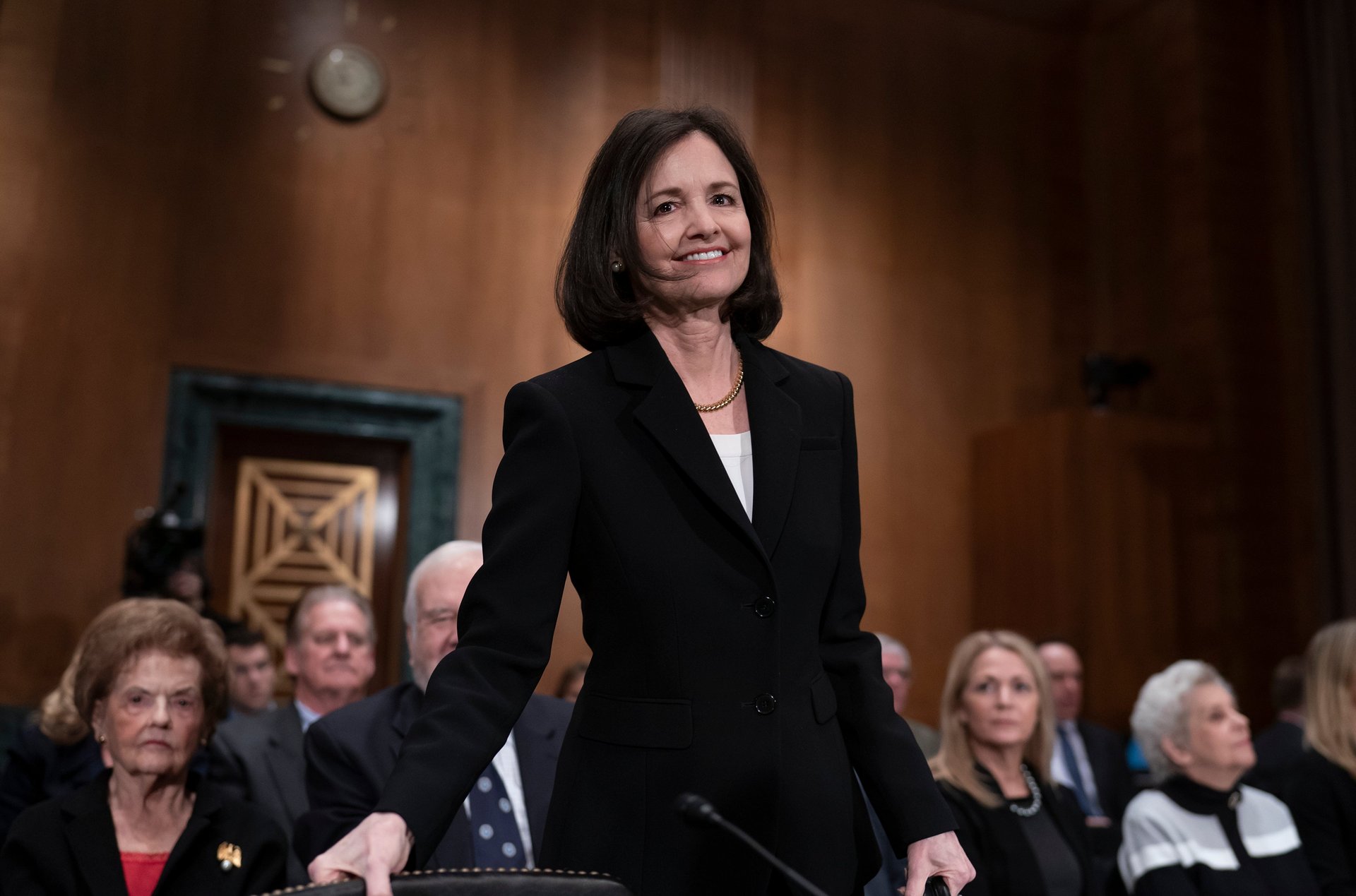Senate committee gave key approval to Fed nominee’s unorthodox economic views
A Trump economic advisor whose signature policy is seen as widely discredited by economists is likely headed to the US Federal Reserve board of governors.


A Trump economic advisor whose signature policy is seen as widely discredited by economists is likely headed to the US Federal Reserve board of governors.
The Senate Banking Committee approved the nomination of Judy Shelton in a 13-12 vote. The decision now goes to the full Senate. Economists have criticized her nomination from the start, pointing to her unorthodox views about the gold standard—she has vocally supported it—in addition to her comments questioning the Fed’s independence.
Most economists agree that the gold standard is an outdated idea that should not be resurrected. Its supporters believe a currency’s value should be connected with the amount of gold in reserves as a way to prevent inflation. It was widely used in the 19th and early part of the 20th century, but officially abandoned by the US in 1971.
The concept makes even less sense in the mist of a pandemic and a recession, said David Wilcox, the former director of research and statistics at the Federal Reserve who opposes Shelton’s nomination. “It is not constructive to expand precious time in what can be an intense policymaking environment in debating ideas that have long since been dismissed as deeply out of the mainstream,” he said. “Decisions sometimes have to be made quickly and it’s important to get those decisions right the first time.”
While several Republicans on the Senate Banking Committee initially said Shelton’s views made her too much of an outlier, all 13 Republicans on it voted to support her nomination on Tuesday. Shelton’s initial hearing was in mid-February, before the Covid-19 pandemic became a major issue across the US. At the time, she was intensely questioned by both Democrats and Republicans on her views on the gold standard and the Fed’s independence.
During the hearing, Shelton distanced herself to varying degrees from her published positions on those topics.
Ahead of Tuesday’s vote, Democrats in the banking committee requested an additional hearing, saying it was especially important to hear from Shelton given the crisis and the Fed’s role in containing it. All 12 Democrats voted against the nomination.
“When we have no leadership from the president and the Federal Reserve chair is one of the only people trying to guide our recovery, putting one of the president’s close advisors on the Fed board will only make things worse,” said Ohio Democratic senator Sherrod Brown at the confirmation hearing today. “Dr. Shelton is a threat to our economy, our democracy, our country.”
Republican senator and banking committee chair Mike Crapo said he was satisfied with Shelton’s answers, her prior experience, and her credentials. “Dr. Shelton provided answers during the hearing and afterward regarding Federal Reserve independence, appropriate response to economic contraction, deposit insurance, and the gold standard.”
But some of her opponents are worried that she will try to tailor monetary policy to fit the Republican party’s needs, given her past flip-flopping on issues. When President Barack Obama was still in office and the US economy had not yet fully recovered from the financial crisis, Shelton criticized the Fed for continuing to hold interest rates low, said Wilcox. After Trump was elected, Shelton shifted her criticism. “She excoriated the Fed for beginning the process of normalizing neutral interest rates, bringing them up to a level that would be consistent with an economy that was performing well,” Wilcox said. “It’s very difficult to interpret that change of views as motivated by considerations other than political convenience.”
Inserting partisanship into the Fed process would raise skepticism and make its policies less effective, he added. If Trump wins re-election, Shelton is seen as a potential successor to Fed Chair Jerome Powell, whose 14-year term ends on January 31, 2028.
As a governor, it’s unclear how much influence Shelton’s ideas would have. Even supporters of the gold standard say it could be limited. “The question of adopting it today would require a commitment to it that would require a supermajority beyond Shelton’s support,” said Lawrence H. White, a professor at George Mason University who teaches on the history of money and one of a few economists who support it. “It’s still a minority position within the economics profession and some economists have wanted to dismiss it.”
Shelton’s nomination will likely go through the full Senate.